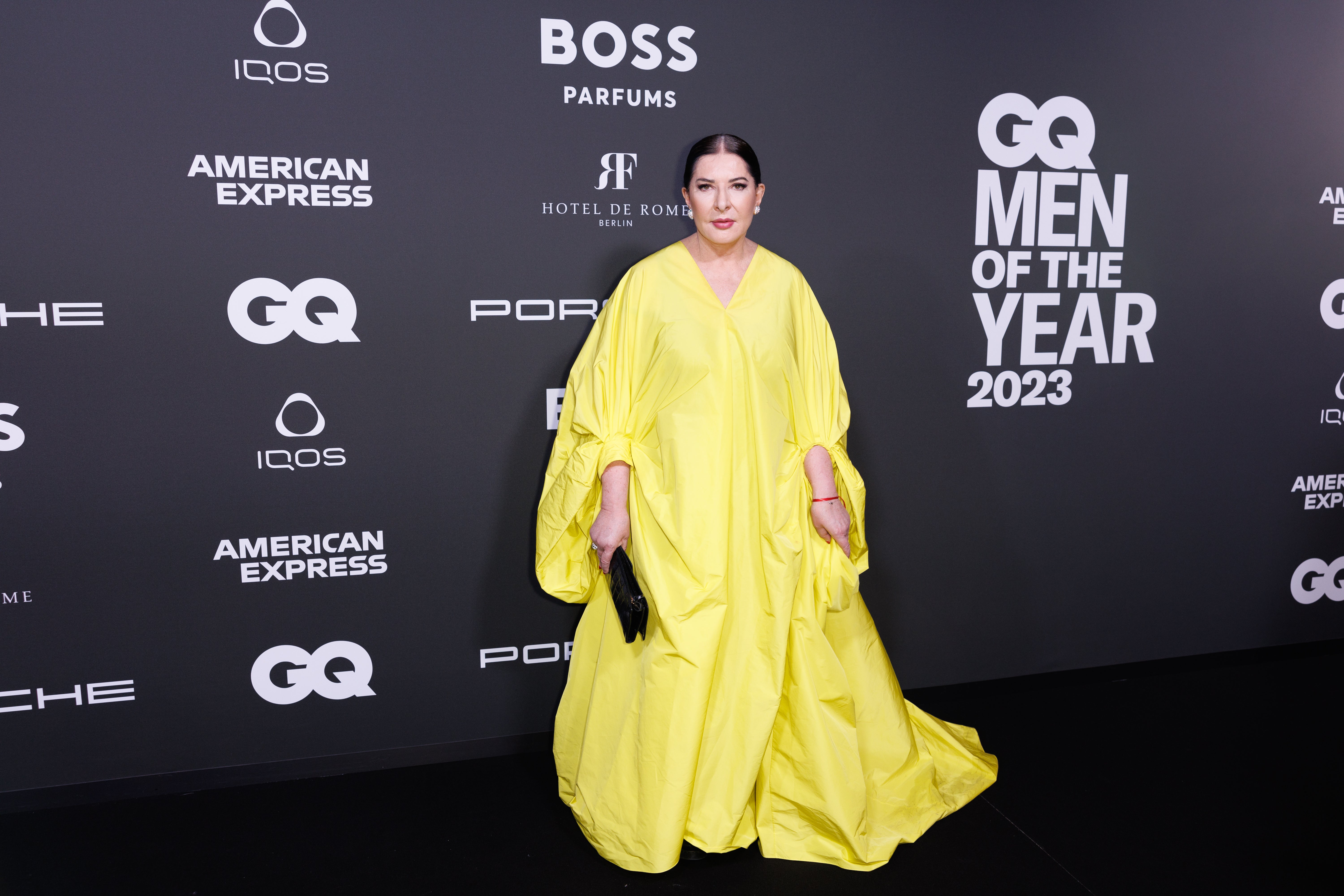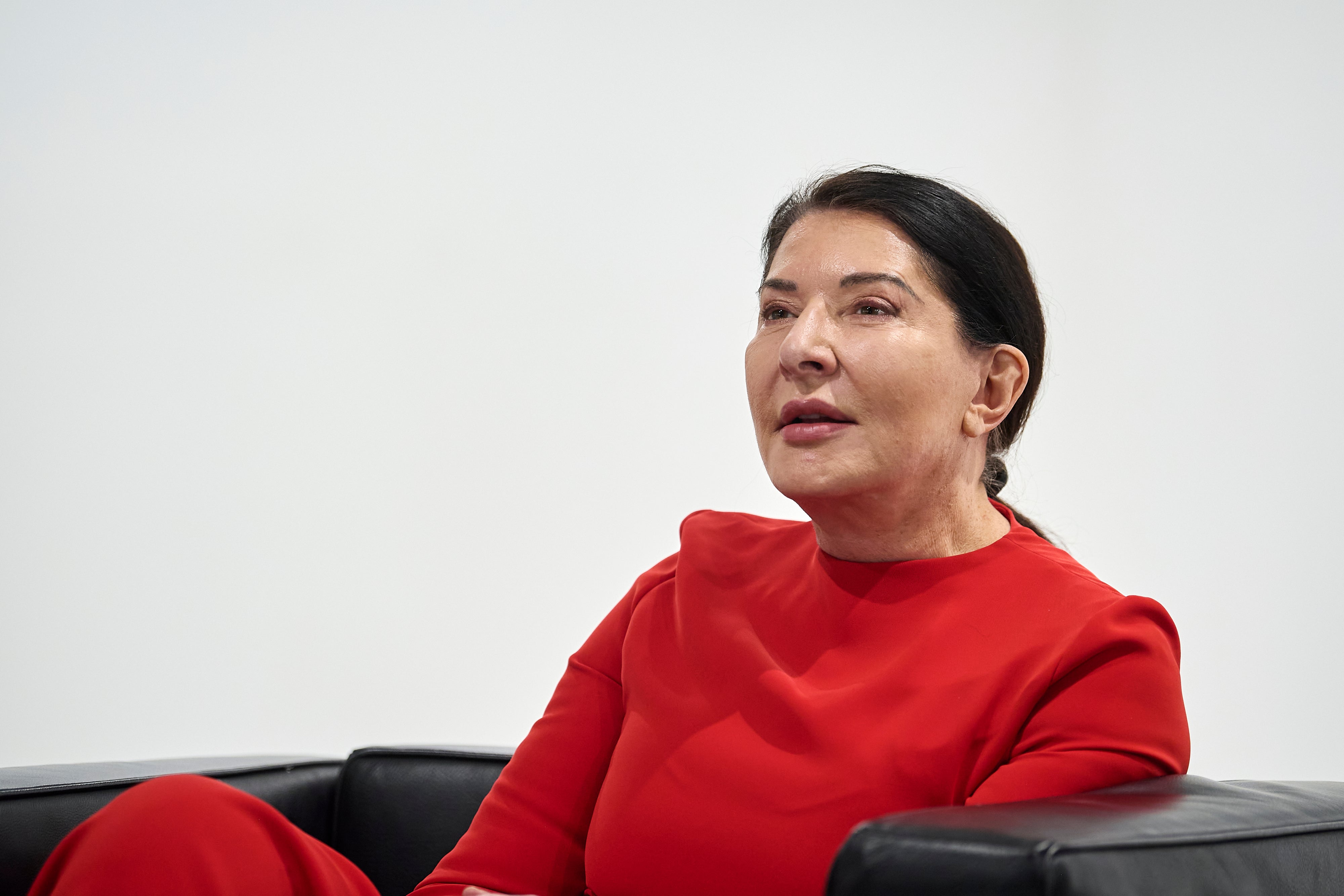Marina Abramović says she was ‘completely deprived’ of happiness during ‘violent’ childhood
The artist said her parents would ‘sleep with pistols next their bed’
Your support helps us to tell the story
From reproductive rights to climate change to Big Tech, The Independent is on the ground when the story is developing. Whether it's investigating the financials of Elon Musk's pro-Trump PAC or producing our latest documentary, 'The A Word', which shines a light on the American women fighting for reproductive rights, we know how important it is to parse out the facts from the messaging.
At such a critical moment in US history, we need reporters on the ground. Your donation allows us to keep sending journalists to speak to both sides of the story.
The Independent is trusted by Americans across the entire political spectrum. And unlike many other quality news outlets, we choose not to lock Americans out of our reporting and analysis with paywalls. We believe quality journalism should be available to everyone, paid for by those who can afford it.
Your support makes all the difference.Marina Abramović has opened up about her “very violent” childhood where her parents “slept with their pistols next to their bed” during her appearance on Desert Island Discs.
The Serbian artist grew up in Belgrade, which was at the time in post-Second World War Yugoslavia.
Appearing on Desert Island Discs on Sunday (3 December), Abramović, 77, told Lauren Laverne that the expectation was for her to focus on her education and study.
“I had French lessons, I had English lessons, I had a ballet teacher, piano teacher. We had [a] maid,” she said. “It’s very spoiled, looking from [the] outside, but at the same time, most parents never talked to each other.
“It was very violent, it was one of the darkest parts of my life.”
Abramović said that when you grew up communist and had parents who were “national heroes” like hers, you were “privileged”, like a “red bourgeois”.
In spite of this, however, Abramović said she had an unhappy childhood and described her parents’ marriage as “hell”.

“I never felt happiness at home,” she said. “Back home, mother and father never even [talked] and there was incredible violence toward each other. They slept with their pistols next to their bed. And, I was thinking, that’s the way it was.”
Abramović said she realised she was “completely deprived” of happiness and love when she looked at the way other families functioned.
But in spite of the violence, the performance artist said she would not go back and change her childhood.
“It’s been very hardcore, my upbringing, but I learned so much, I became so strong,” she said. “Now I’ve been doing this work 55 years and I’m 77 and people go to pension and they stop working, I’m not even thinking of [stopping] working. I have so many projects still in my mind.”
Abramović also discussed one of her most well known projects, the 1974 performance art piece “Rhythm 0” in which she laid out 72 objects on a long table and invited the public to do whatever they wanted to her body as she stood there, still and passive.
She told Laverne that the public were “getting more and more violent” as the six-hour performance went on and described how people had cut under her neck to drink her blood.

Abramović has been creating performance pieces for decades and said solitude was an important part of her life and work.
“I love solitude,” she said. “I spent three months in the forest, in a cell, just repeating a mantra and I finished the mantra after three months, repeating one million, one hundred thousand and one times. I only had one meal, which the monastery [would] bring me up in the mountain.”
Abramović said that she did not see anyone and would have a meal a day which would be taken to her at 12 o’clock. After three months, once she had finished her mantras, Abramovic sent a message to the monastery, left the cell and then burned all of her possessions.
Her work is currently on display at the Royal Academy of Arts. You can read The Independent’s review here.
Additional reporting by Press Association
Join our commenting forum
Join thought-provoking conversations, follow other Independent readers and see their replies
Comments